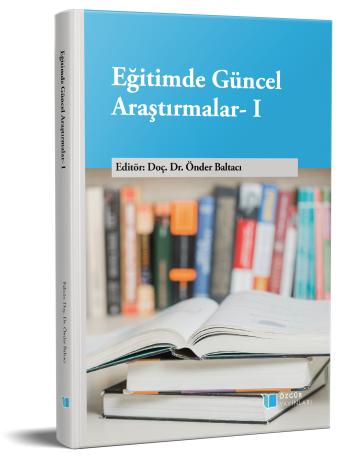
Üniversite Öğrencilerinin Çevrimiçi Eğitime Yönelik Görüşlerinin İncelenmesi
Şu kitabın bölümü:
Baltacı,
Ö.
(ed.)
2023.
Eğitimde Güncel Araştırmalar- I.
Özet
Ülkede yaşanan her türlü kriz durumu eğitim sürecini doğrudan ya da dolaylı olarak etkilemektedir. Deprem, tsunami, sel, savaş ve salgın hastalıklar gibi doğal afetler meydana geldiğinde öğrencilerin eğitim hakkı tehdit altına girmektedir. Türkiye’de 6 Şubat’ta yaşanan büyük depremlerin ardından yükseköğretimde öğretim faaliyetleri pandemi sürecinden sonra ikinci kez zorunlu olarak çevrimiçi olarak devam ettirilmiştir. Bu çalışmanın amacı, biyoloji, fizik, kimya ve matematik üniversite öğrencilerinin çevrimiçi eğitime yönelik görüşlerini cinsiyet, bölüm, sınıf düzeyi, dersleri takip etmek için kullanılan araç ve internet bağlantısı türü değişkenlerine göre belirlemektir. Tarama modelinde yürütülen araştırmanın çalışma grubu İstanbul’da bir devlet üniversitesinin eğitim fakültesindeki ilgili bölümlerde okuyan 81’i kadın, 33’ü erkek olmak üzere toplam 114 öğrenciden oluşmaktadır. Üniversite öğrencilerinin çevrimiçi eğitime yönelik görüşlerini toplamak amacıyla kullanılan çevrimiçi eğitimi değerlendirme ölçeği 16 maddeden oluşan 3 faktörlü bir ölçektir. Ölçek çevrimiçi eğitime karşı tutum, çevrimiçi eğitimde öğrenme – öğretme süreci ve çevrimiçi eğitimde ölçme – değerlendirme süreci alt boyutlarından oluşmaktadır. Veriler SPSS programı ile analiz edilmiştir. Araştırmada toplanan verilerin iç güvenirliği Cronbach alfa ile .93 olarak hesaplanmıştır. Elde edilen bulgulara göre, üniversite öğrencilerinin çevrimiçi eğitime karşı tutumlarının 2.29 (düşük), çevrimiçi eğitimde öğrenme – öğretme sürecine karşı algı düzeylerinin 3,40 (orta) ve çevrimiçi eğitimde ölçme – değerlendirme sürecine ilişkin görüşlerinin 2.96 (düşük) düzeyinde olduğu belirlenmiştir. Ayrıca cinsiyet, bölüm, sınıf düzeyi, dersleri takip etmek için kullanılan araç ve internet bağlantısı türüne göre üniversite öğrencilerinin görüşleri farklılaşma göstermezken, çevrimiçi eğitimde öğrenme – öğretme süreci boyutunda internet bağlantısı türü değişkenine göre ve çevrimiçi eğitime karşı tutum boyutunda da sınıf düzeyine göre anlamlı bir farklılık görülmüştür.

